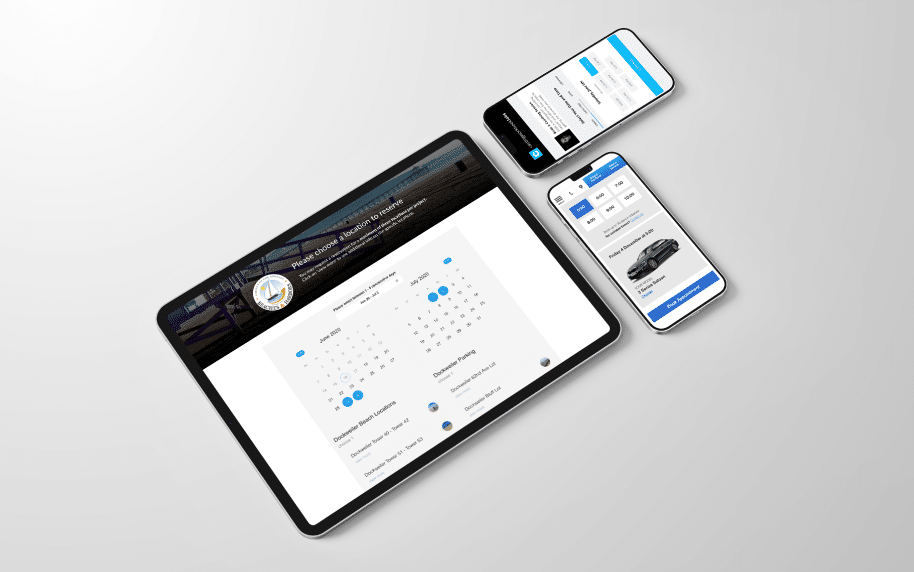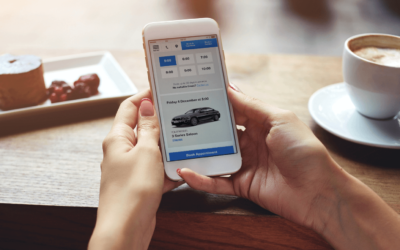We started Periodic based on the idea that the world needed a white label booking platform. For years, I’ve been saying “Periodic IS white label booking.” or “Periodic IS white label scheduling.”. Over time, I’ve realized that it’s not obvious what that means. I thought it might be helpful to share some of my thoughts on the concept.
We’re all familiar with online booking. We do it all the time. Whether it’s booking a flight or car, booking an appointment with a hairstylist or therapist, or booking a time to get that vaccine shot, online booking is part of our every day lives. In many cases, we book appointments and make reservations through marketplaces. In other cases, we book directly with a service provider. In either case, the experience can be largely impacted by whether the service provider is using their own software, a branded software tool, or a white label booking system.
Marketplace-branded Experiences
When you book a flight through Kayak or Expedia, you probably assume that you’re using their own home-grown software. This is largely true, because that’s what they do. These are technology companies that have huge teams of software developers. Even though they are tapping into other systems to get data and process transactions, the booking experience is largely driven by custom-built software. Even some large manufacturers and retailers may build their own booking software, or engage an agency to build a custom booking workflow.
However, more and more brands and marketplaces are launching online booking and scheduling solutions powered entirely by third-party software. In many cases, it’s impossible for consumers to tell the difference. There are perfectly good reasons for marketplace owners to build their own software. In some industries, it may even be necessary for regulatory reasons, but building from scratch will always be far more expensive than building on an existing platform. If you do choose to build on a software platform, it’s critically important that the software remains invisible to the consumer.
Software-branded Experiences
When you book an appointment with a doctor or hairstylist, the experience may be very different. Doctors and hairstylists are not usually software developers, and they don’t typically carry large teams of software developers, either. They are most likely using a 3rd party software to enable booking through their website. Whether or not this system is white label is usually pretty easy to determine.
Look at the URL. Are you being forced to book on the software company’s domain? Oftentimes, customers are redirected to a whole new website at a different domain when clicking a “book now” or “schedule appointment” button on the website of a trusted service provider. This immediately creates skepticism in the mind of the customer. Even if the site is secure, the fact that it is hosted at an unrecognized domain will be unsettling to most customers. Many scheduling software companies, like Calendly or YouCanBookMe insist that their customers sites are hosted at the software company’s domain. They rely on that to create their own brand awareness, in hopes that the consumer will drive other service providers to use their software.
Is the software company’s logo appearing on the page? It may front and center, or it may be hidden down in the footer of the page, but most booking and scheduling software companies want users to know that they are powering the booking experience.
Brand-branded Experiences
Systems like periodic allow service providers and marketplace owners alike to create a bespoke customer experience that adheres to a pre-determined brand standard. This allows brand-conscious organizations to create a private label experience. Private label means that the retailer can put their own label on the experience and deliver the experience via their own custom domain. The software company remains invisible to the end user.
This is very useful for large companies who want to allow customers to book directly with their brand, and it’s especially useful for agencies tasked with creating customer experiences on behalf of these brands, but for marketplaces and software resellers, private label may not be enough. You may need a white label system. A white label system not only allows you to put your own brand on the experience and deliver it via your domain, but also allows you to onboard your own customers or unaffiliated service providers, and allow them to put their brand on the experience. Periodic allows you to choose whether you want booking sites to carry your brand, your customer’s brand, or both.
Consumers transact online in two primary ways: through marketplaces they trust (think Amazon, Ebay, AirBNB) and through brands that they trust (think Apple, BMW, or Nike). Brand equity is a critical factor in driving online transactions. Introducing a third-party software’s brand into the mix can only serve to dilute that equity and lower consumer confidence – and therefore, lower the number of transactions you’ll get. White label booking allows organizations to leverage their brand equity without the incredible cost of building an in-house software team.
What are some use cases that require a white label booking system?
Entrepreneurs: Launch your own Calendly competitor.
There are lots of scheduling software products that will allow you to launch a Calendly-like booking experience for your business, but how many make it possible for you to brand the entire platform and sell subscriptions to it? A white label system allows you to launch a full-featured scheduling application, branded and tailored to your specific industry or audience.
Entrepreneurs: Launch a service marketplace or an Airbnb for X.
Because periodic offers robust e-commerce capabilities, including location-based search and automated payouts, you can easily launch your own online service marketplace, like and AirBnB, ZocDoc, or Thumbtack. Build your own brand that will attract customers and service providers. We’ll stay behind the scenes.
SaaS Companies: Create a new revenue stream by adding a scheduling or booking module to your offering.
No matter what your software product does, adding instant booking or scheduling could be a valuable addition. If you offer any sort of automation in sales, marketing, customer service, or CRM, scheduling is a natural feature that will add value to your customers. Every industry has a need for online booking, scheduling, or appointment setting. If you offer an industry-specific software solution, why not become the scheduling software provider for your industry?
Agencies and Marketers: Add instant booking features to your clients’ brand or event websites.
Big Brands hire agencies with an expectation of results. Your creativity will drive traffic into beautifully crafted experiences that will resonate with the customer. How will you capture that customer for your client? Lead capture forms are a thing of the past. Instant booking of a demo, consultation, assessment or installation will give the customer the instant gratification they want, and give the brand what they need. Why offer your client leads, when you could be delivering them customers?
Governments and Universities: enable instant booking of facilities, amenities, and activities through your own website.
Governments and universities are some of the most depended-upon service providers in the world. By giving students and citizens access to real-time booking of these services, you can generate invaluable satisfaction for your institution. By delivering that experience under your own brand, trust is maintained, and a personal connection is created. Whether it’s booking office hours with a professor, an appointment with an academic advisor, a permit review, or reserving a bocce court with the Parks & Recreation department, a private label experience will help your institution deliver a great experience.



